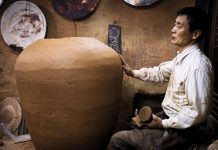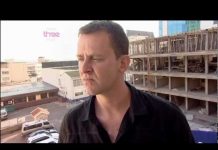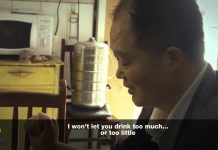“The House Fata Didn’t Build” is a powerful and poignant documentary that explores the legacy of the Bosnian War through the story of Fata Orlovic and her fight to remove a Serbian Orthodox church erected on her property after her home was ransacked and her family members were killed. The documentary takes viewers on a journey to the Bosnian Village of Konjevic Polje, where Al Jazeera Correspondent host Sami Zeidan interviews Fata Orlovic and Bishop Vasilije Kacavenda, opposing figureheads in a heated legal battle over the church.
The documentary provides a brief history lesson on the Bosnian War, highlighting the 1995 massacre of over 8,000 Bosnian Muslim males in a sweep of ethnic cleansing unseen since World War II. Fata Orlovic, a tenacious and spirited senior citizen, is one of the surviving widows left to pick up the pieces of a shattered community. When Fata returned home to Konjevic Polje in 2000, she found her home ransacked and a Serbian Orthodox church erected on her property where her garden used to be. Fata instigated a heated legal battle to have the building removed from her land, facing physical abuse and intimidation from local police and religious leaders for over a decade.
The documentary does an excellent job of highlighting the complexities and challenges of the legal battle over the church. Zeidan meets with Bishop Vasilije Kacavenda, the man with the power to demolish or move the church, but the interview is cut short when Kacavenda decides he does not care for Zeidan’s line of questioning. The documentary also explores the role of local lawyers and the community in supporting Fata’s fight for justice, and raises important questions about the legacy of the Bosnian War and the challenges of reconciliation and healing in its aftermath.
One of the strengths of the documentary is its focus on the personal and emotional toll of the conflict. We see the impact of the war on Fata and her family, and the ongoing trauma that they continue to experience. The documentary also highlights the ways in which the conflict has left a lasting legacy of suspicion and distrust between different communities in Bosnia, and the challenges of rebuilding trust and fostering reconciliation.
In conclusion, “The House Fata Didn’t Build” is a thought-provoking and powerful documentary that sheds light on the legacy of the Bosnian War through the story of one woman’s fight for justice. The documentary is a reminder that the fallout from war is far-reaching and long-lasting, and that the work of reconciliation and healing is a complex and ongoing process.

































